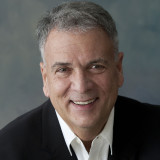If you practice for a long time, especially if you practice a subspecialty, you can fairly easily reach that magic milestone where the number of acronymic letters that follow your name exceeds the number of letters in it. Middle name included! This might be one of Malcom Gladwell’s tipping points. My Virtue Signaling Lamp is dark here, for I am guilty of pursuing this particular brass ring for reasons I can neither completely fathom nor cogently defend.
The psychopathology of this form of telolitteromania (my neologism, DSM-5 Axis pending) hit me when I received a membership mailing for a professional subsociety — yes, Virginia, there are actually subsocieties — of an organization that has already bestowed upon me three coveted consonants and one vowel. Not so long ago, I would have had my application (accompanied by my tax-deductible payment) completed and submitted with lightning speed. But retirement changes one’s perspective on the importance of medicine’s version of The Paper Chase.
And let’s face it, we’ve been chasing paper our whole lives.
First, we chased a college diploma. Some of us chased undergrad “honor societies,” which we fervently believed would dazzle members of any admissions committee. We may have, wishing to enhance our chances further, chased a Master’s degree or even a non-medical doctorate. Finally (we thought), we chased a medical school diploma that gave us those two letters which would define the rest of our professional lives.
As they say in infomercials: "But wait – that’s not all!"
Next we had to chase a license; and then there were a plethora of organizations offering yet more paper, translated as certificates we could hang on our wall. It was so much fun to see our names writ large with those magic letters. So much fun we wanted more. And the profession was happy to oblige. Only a resident? No problem. You can be a Candidate Member of your specialty college! Finished your training? There’s that Board Certification paper you need to get now.
So let’s recap: College degree? Check. Medical Degree? Check. Training Certificate? Check. Board of Whatever Certificate? Check. Specialty College Membership? Check.
Are we done yet?
Not even close. Welcome to the Wonderful World of Fellowships!
No, not those extra years of indentured service. These fellowships are jolly good honorifics. That society that accepted you — it’s the school cafeteria. What you want now is your seat at the Cool Kids Table.
There is nothing intrinsically wrong with the concept of a specialty college conferring a fellowship. Most are given in recognition that you’ve done more than just show up for work every day. The legitimate ones recognize things like scholarly activity and publications, medical education, community service, and commitment to improving patient care. If you’ve done those things, you’ve earned that recognition and should be proud of it. If you’ve done those things really well and for a long time, they might tack a “D” for “distinguished” on. A place at the Somewhat Cooler Kids table, if you will.
We could just stop there. But speaking as an inveterate paper chaser, I started to realize I could be a member and then a fellow of other specialty colleges that had wafer-thin Venn Diagram crossovers with my own. Soon I was a member of several of them and altered my office letterhead accordingly. Then the emails started. A number of sometimes dubious “specialty” colleges and societies seemed to spring up overnight — all offering fellowships and thus even more letters to append. Soon, the royal and ancient organizations got wise and began offering seats at the Really Cool Kids Table. I’m not in the habit of defaming or libeling so I won’t identify these opportunities by name, but the one I received and that prompted this essay veritably dripped with hubris. Let’s call it, “The League of Extraordinary Master Specialty Physicians,” with apologies to the Marvel Universe. There’s nothing illegal, unethical, or immoral about these medical equivalents of Skull & Bones. But they appeal to our lesser angels, our fear of missing out on something even just one of our peers somewhere might have. This green-eyed software was programmed into us back in med school, if not earlier, only then it was a magic textbook or a secret set of notes or “the precious” – a highly sought-after audition rotation.
Many of my colleagues and I also believed these appellations were pieces of armor that would instill fear in any potential plaintiff’s attorney, as well as provide an impenetrable defense of our infallibility. When I mentioned this to a friend who was such a lawyer, she just laughed. But still the chase goes on. I had a colleague in a related specialty who far outdid me in the ALL CAPS department. I joked that if he added any more fellow designations, his actual correspondence would have to start on Page 2 of his stationery.
I briefly toyed with the idea of establishing my own letter-bestowing organization – the American College of Fellows. Basically anyone could be a member and, by extension, a fellow. The only requirement is that you be a fellow of at least one other organization. For a modest processing fee, you could proudly add FACF after your name. If you’re a fellow in multiple others, I’d even make you a Distinguished Fellow (just pay shipping and handling).
I am not unhappy with or embarrassed by my brimming bowl of alphabet soup but, really, I could have stopped at one and been just fine. So before you hit that point of acronymical equipoise, take a moment to ask yourself — is adding anything really going to add anything?
How many letters are after your name? Compete in the comments below.
Daniel J. Waters, DO, MA practiced cardiac surgery for 30 years and served as a Director of Medical Education for 20 before retiring in 2019. He is now a full-time author and novelist. Dr. Waters was a 2019-2020 Doximity Op-Med Fellow and is a 2020–2021 Doximity Op-Med Fellow.
Illustration by Jennifer Bogartz







